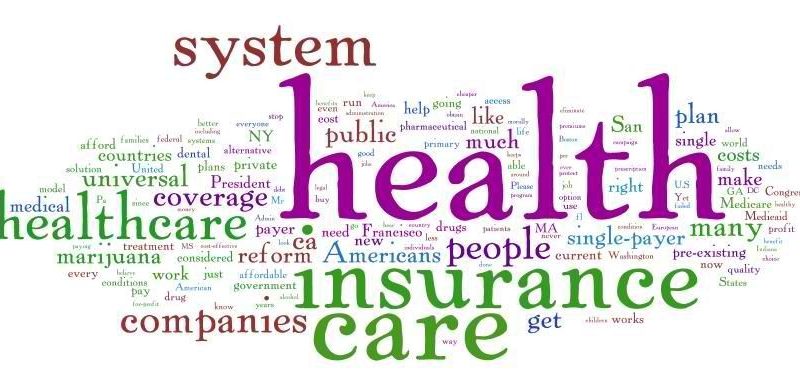Healthcare Reform in the US: Current Debates and Developments
Healthcare reform in the United States remains a contentious and highly debated topic, touching upon issues of accessibility, affordability, and quality of care. With the healthcare landscape continuously evolving, understanding the current debates and developments is crucial for policymakers, healthcare providers, and the public alike. This article delves into the key aspects of healthcare reform, highlighting the ongoing discussions and recent advancements in the sector.
Historical Context
Healthcare reform in the US has a long history, dating back to the early 20th century. The introduction of Medicare and Medicaid in 1965 marked significant milestones, providing healthcare coverage to the elderly and low-income individuals. However, it wasn’t until the Affordable Care Act (ACA) of 2010 that a comprehensive effort was made to overhaul the healthcare system. The ACA aimed to expand insurance coverage, reduce healthcare costs, and improve the quality of care.
Current Debates
Universal Healthcare vs. Market-Based Solutions
One of the most polarizing debates in healthcare reform is the push for universal healthcare versus market-based solutions. Proponents of universal healthcare argue that it is a fundamental human right and that a single-payer system would ensure equitable access to healthcare for all citizens. Critics, however, contend that such a system would lead to increased government control, higher taxes, and potential inefficiencies.
On the other hand, advocates of market-based solutions believe that competition among private insurers can drive down costs and improve quality. They argue that consumer choice and innovation are best preserved in a market-driven system. However, opponents of this approach point to the millions of uninsured or underinsured Americans as evidence of its shortcomings.
Medicare for All
The “Medicare for All” proposal has gained significant traction in recent years, particularly among progressive politicians. This plan seeks to expand the existing Medicare program to cover all Americans, effectively creating a single-payer healthcare system. Supporters argue that it would simplify the healthcare system, reduce administrative costs, and provide comprehensive coverage.
Critics, however, raise concerns about the financial feasibility of such a plan. They argue that the costs associated with implementing Medicare for All would be astronomical, potentially leading to increased taxes and budget deficits. Additionally, there are fears that it could disrupt the current healthcare market, affecting providers and insurers.
Public Option
As a compromise between universal healthcare and market-based solutions, the public option has emerged as a viable alternative. The public option would create a government-run health insurance plan that competes with private insurers. Proponents believe it would increase competition, drive down premiums, and provide consumers with more choices.
However, opponents argue that a public option could lead to an uneven playing field, as the government plan might have advantages that private insurers do not. There are also concerns about the potential for increased government intervention in the healthcare market.
Prescription Drug Pricing
The high cost of prescription drugs remains a critical issue in the healthcare reform debate. Policymakers are exploring various strategies to address this problem, including allowing Medicare to negotiate drug prices, implementing price caps, and promoting the use of generic medications.
While there is broad agreement on the need to reduce drug prices, the methods to achieve this goal are hotly contested. Pharmaceutical companies argue that price controls could stifle innovation and limit the development of new treatments. Conversely, advocates for reform emphasize the urgent need to make medications more affordable for patients.

Recent Developments
Expansion of Medicaid
Several states have recently expanded Medicaid under the ACA, providing coverage to millions of low-income Americans. This expansion has been shown to improve access to care, reduce uninsured rates, and enhance health outcomes. However, some states remain resistant to expansion, citing concerns about long-term costs and federal overreach.
Telehealth
The COVID-19 pandemic has accelerated the adoption of telehealth services, transforming the way healthcare is delivered. Telehealth has proven to be a valuable tool in increasing access to care, particularly in rural and underserved areas. Policymakers are now considering how to make telehealth a permanent fixture in the healthcare system, addressing issues such as reimbursement rates, licensure, and technology infrastructure.
Healthcare Workforce
The pandemic has also highlighted the critical need for a robust healthcare workforce. Efforts are underway to address shortages of healthcare professionals, particularly in primary care and rural areas. Initiatives include increasing funding for medical education, expanding loan repayment programs, and improving working conditions for healthcare workers.
Health Equity
Health equity has become a central focus in the healthcare reform debate, with an emphasis on addressing disparities in access and outcomes among different populations. Policymakers are exploring strategies to reduce health disparities, such as expanding access to preventive care, investing in community health programs, and addressing social determinants of health.
Conclusion
The future of healthcare reform in the United States remains uncertain, with ongoing debates and developments shaping the landscape. As policymakers grapple with the complex challenges of creating an equitable, affordable, and high-quality healthcare system, the voices of stakeholders—including patients, providers, insurers, and advocates—will play a crucial role in shaping the path forward.
Understanding the current debates and recent advancements in healthcare reform is essential for informed decision-making and active participation in the ongoing dialogue. Whether through incremental changes or sweeping reforms, the ultimate goal remains the same: to ensure that all Americans have access to the care they need to lead healthy and fulfilling lives.










